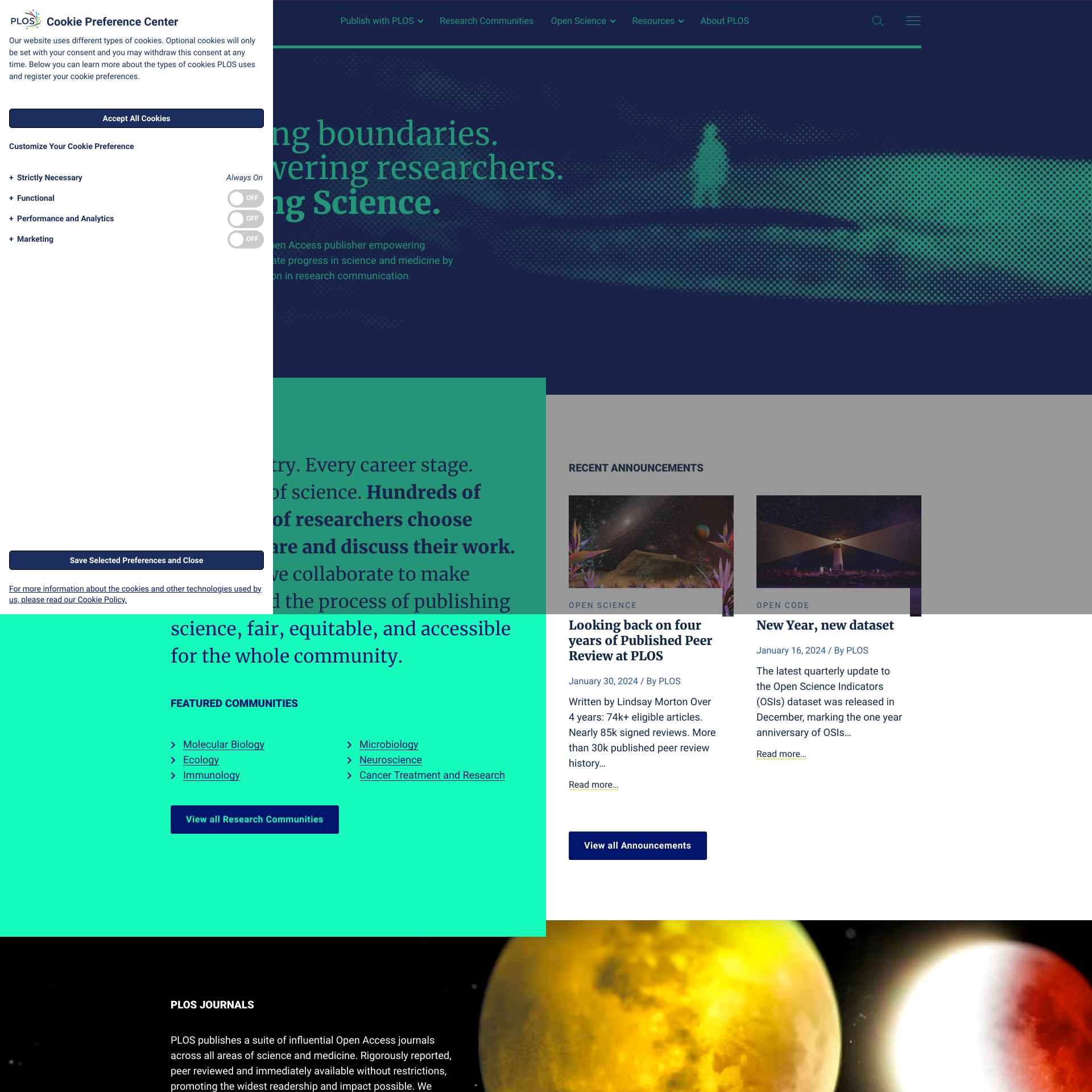PLOS.org, the Public Library of Science (PLOS), is a leading website that is revolutionizing the way scientific research is shared and accessed worldwide. With its commitment to open access publishing, PLOS.org has provided a platform for scientists and researchers to freely disseminate their findings, fostering global collaboration and accelerating scientific progress.
At the forefront of the open access movement, PLOS.org aims to remove barriers to scientific discovery by making research accessible to all. The website hosts a vast repository of high-quality journals covering a wide range of scientific disciplines, including biology, medicine, physics, and more. Its articles undergo rigorous peer review, ensuring the reliability and validity of the research.
PLOS.org is distinguished by its commitment to transparency and accessibility. Scientific articles are freely available to everyone, eliminating the need for expensive journal subscriptions that hinder collaboration and knowledge dissemination. This approach has garnered immense support from the scientific community, resulting in a growing number of researchers choosing to publish their work on PLOS.org.
While PLOS.org leads the open access movement, it faces competition from other scientific publishing platforms. One of its closest competitors is BioMed Central (BMC). Like PLOS.org, BMC is committed to open access publishing and offers a wide range of scientific journals. Competing with PLOS.org’s extensive reach, BMC boasts a substantial number of high-profile articles and a strong network of researchers.
Another significant competitor is Elsevier’s Open Access initiative. While Elsevier has faced criticism for its traditional subscription-based model, the company has responded to the growing demand for open access by launching its own platform. Elsevier’s Open Access initiative enables researchers to publish their work without paywalls while benefiting from a well-established publishing infrastructure.
In conclusion, PLOS.org continues to be a trailblazer in the field of open access publishing, providing an invaluable platform for researchers to share their findings with the global scientific community. While facing competition from initiatives such as BioMed Central and Elsevier’s Open Access, PLOS.org remains dedicated to its mission of democratizing access to scientific knowledge, benefiting researchers and society as a whole.
Link to the website: plos.org



